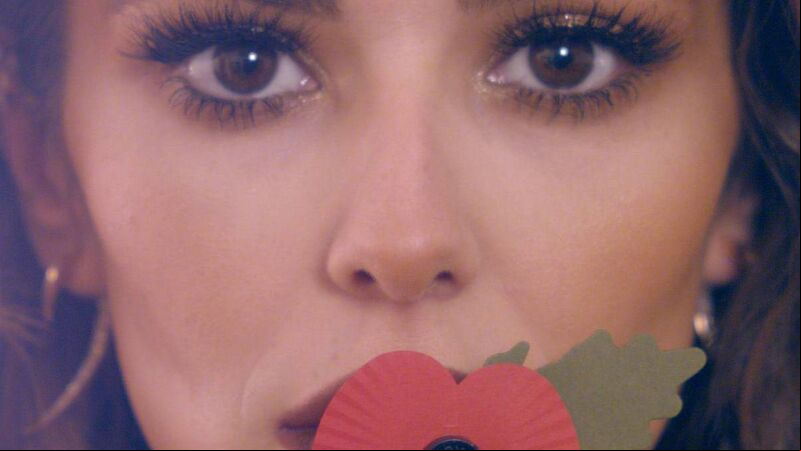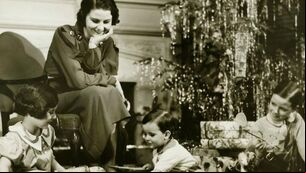An annual war of words... so who is right in poppy debate?

TV personality Cheryl backing a poppy appeal in 2015. The symbol is viewed differently in the UK and Ireland
Football player James McClean has very publicly refused to don the emblem, while Cork player-turned-pundit Roy Keane chose to wear one on TV while doing work for Sky.
Both have been criticised, so is there a right and wrong here?
Well, to get an answer to that question, we need to delve into the history of the poppy to find out what exactly this famous red flower signifies.
According to History.com, World War I took a greater human toll than any previous conflict. Between 1914 and 1918, some 8.5 million soldiers died either from battlefield injuries or disease.
The Great War, as it was then known, also ravaged the landscape of western Europe, where most of the fiercest fighting took place.
At the Second Battle of Ypres. Lieutenant Colonel John McCrae tended to the wounded. He was a Canadian soldier who served as a brigade surgeon for an Allied artillery unit. Some 87,000 Allied soldiers were killed, wounded or went missing in that battle as well as 37,000 on the German side. A friend of McCrae’s, Lieutenant Alexis Helmer, was also among the dead.
He got a first-hand look at the carnage of that clash, in which the Germans unleashed lethal chlorine gas for the first time in the war. In the midst of the carnage, he spotted a cluster of poppies growing in the devastated landscape of the battlefields. They grew mostly on disturbed ground such as trenches and shell holes.
Struck by the sight of bright red blooms on broken ground, McCrae wrote a poem, In Flanders Field, in which he channelled the voice of the fallen soldiers buried under those hardy poppies, and thanks to a famous poem, they became a powerful symbol of remembrance.
Published in Punch magazine in late 1915, the poem has been used at countless memorial ceremonies and became one of the most famous works of art to emerge from the Great War. It describes the delicate red wildflowers that bloomed where more than a million soldiers died.
Its fame had spread far and wide by the time McCrae died, from pneumonia and meningitis, in 1918.
The poppy tradition was actually born in when Anna Guérin, a teacher turned war effort fundraiser, began selling poppies on designated days from September, 1919. She then addressed the American, Canadian and British legions to ask for the poppy to be acknowledged as the Remembrance emblem.
In 1921, the Royal British Legion (RBL) ordered a million poppies from Anna and commissioned a further eight million to be manufactured in Britain, which were sold on November 11 that year in the first ever Poppy Appeal.
The tradition has carried on ever since and commemorates those who sacrificed their lives in World War I and all conflicts that have happened since. It is said to represent remembrance and hope.
The RBL Republic of Ireland branch is also actively involved in remembrance of the Irish who fought and died in both world wars in either the British or Commonwealth forces. It is providing €540,000 over the next five years to partially fund memorials to the Irish dead of World War I.
So, in light of this, what has Derry native James McClean got against wearing a poppy?

McClean 35, who plays for Wrexham, refused to participate in commemorations during a match on November 9, the day before Remembrance Sunday. He reportedly requested to not wear an embroidered poppy on his jersey and stood apart from his Wrexham teammates during a pre-match minute’s silence.
McClean took to Instagram to explain his position; “The poppy which originally stood for World War I and II, has now been adopted into honouring and ing British soldiers that have served in all conflicts throughout the world, including those who opened fire and murdered 14 innocent civilians on Bloody Sunday, in my home city, as well many other brutal crimes throughout Ireland.”
He said the poppy “represents for me an entirely different meaning to what it does for others”. He is “absolutely not” offended by someone else wearing a poppy, rather, he is offended by having the poppy “forced” upon him and has said he will never wear one.
Roy Keane, on the other hand, seems happy to keep his thoughts to himself, and that’s fair enough too.
A spokeswoman for the Royal British Legion was critical of the way McClean was treated by some people, and asserted that for him, or anybody else, wearing a poppy must be a personal choice.
So, there is no right or wrong as far as I can see, but no doubt others will disagree with me.







 App?
App?




